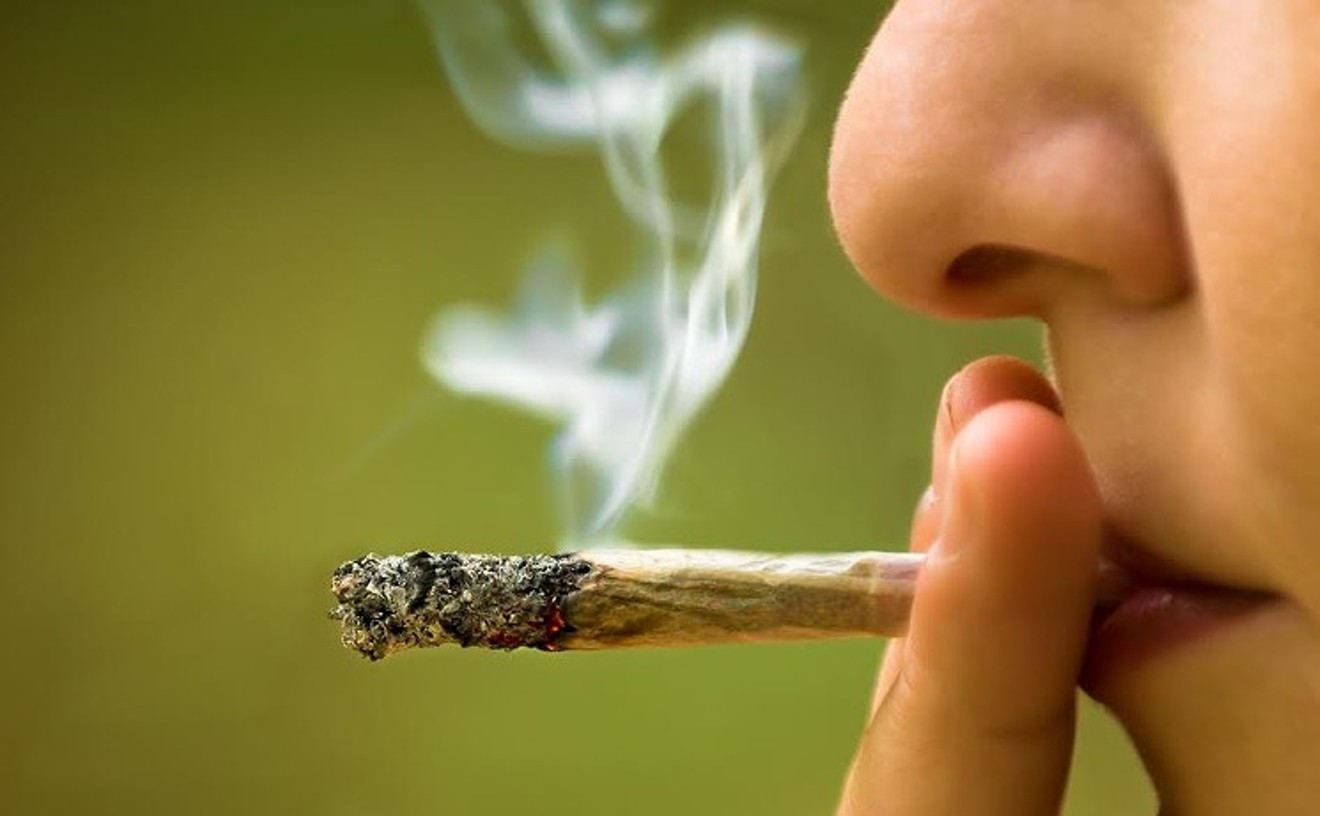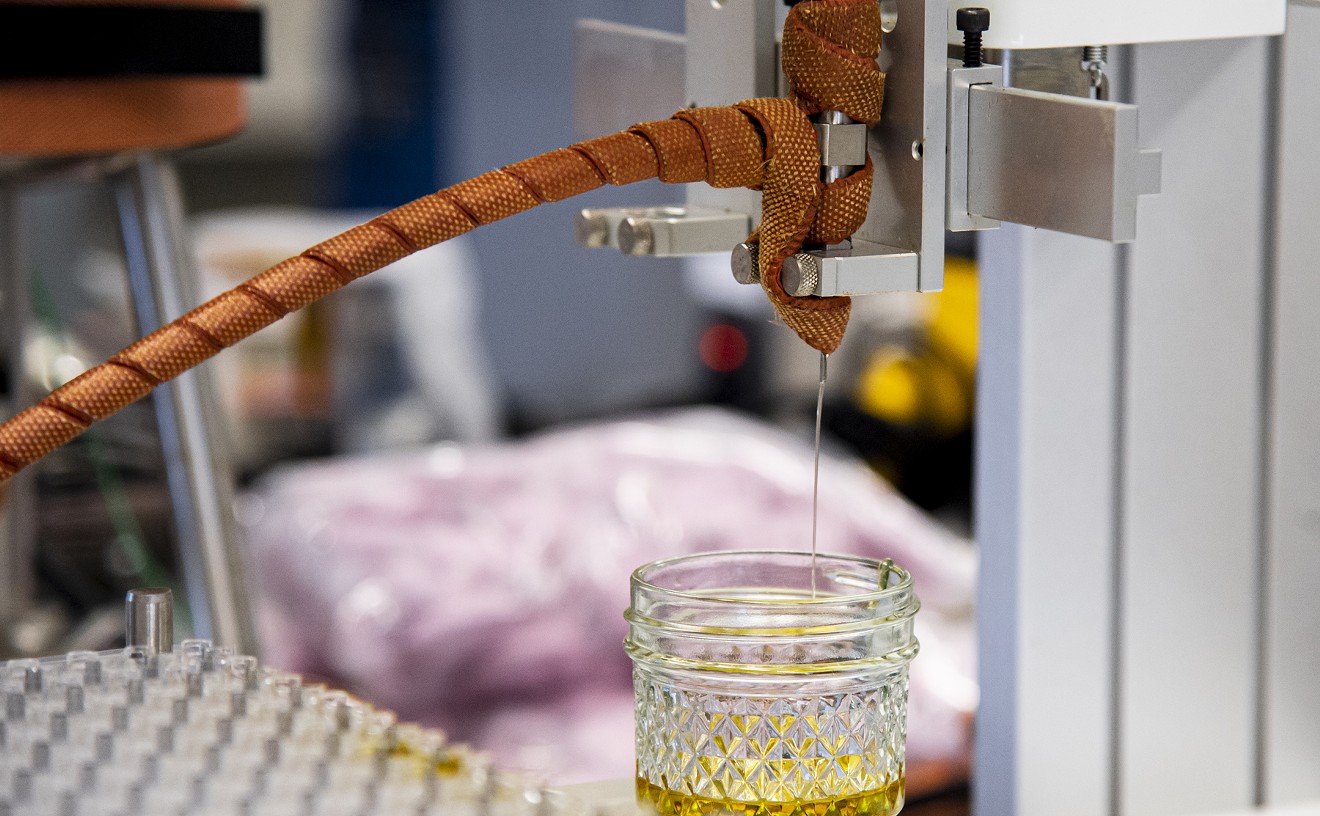Arizona courts are dealing with legal challenges to possession protection.
A criminal case making its way through state appellate courts could give law enforcement legal tools to circumvent protections enjoyed by pot users that were enshrined in Proposition 207.
The Mohave County case, like two similar cases before it, determines how to balance the rights of adults in the state to possess legal amounts of cannabis against police claims that they can enforce federal laws on state highways.
The cases renew focus on the conflict between state and federal pot policy. Almost every state has legalized medical or recreational use, but cannabis is still federally illegal and listed as a Schedule I narcotic on the same level as drugs such as heroin, LSD, or peyote.
The Mohave case involves a commercial driver busted for possession, and will come down to the judge's decision on whether to enforce federal law on Arizona highways or follow the will of 60 percent of state voters who passed the measure in 2020.
Should the judge rule against the driver, pot users and distributors may find law enforcement undermining the protections assumed in Prop 207.
A prominent Phoenix pot attorney is fighting to stop that from happening.
In 2021, self-promoted "Attorney for Cannabis" Tom Dean took on three arrest cases for pot possession in commercial motor vehicles, two in Mohave County and one in Pinal County. One was dismissed on legal technicalities and another settled, but the third is set to be heard in appeals court in Kingman within weeks.
Should the state decide against Dean's client, the result could give prosecutors an edge in future cases, affecting interpretation of Prop 207 — the Smart and Safe Arizona Act (SSAA) — that legalized cannabis in Arizona.
The case in Pinal Justice Court was dismissed, but Dean said the arguments made by the Pinal County Attorney's Office were troubling. He fears they could open the door for a broad interpretation of federal law and allow Arizona courts to prosecute drivers caught in possession of pot.
The PCAO argued that a Code of Federal Regulations prohibits possession of any Schedule I substance, including marijuana, in a commercial vehicle.
"Essentially their position was that federal law is not affected by state legalization, and they claimed they're allowed to do that," Dean said.
Under Prop 207, anyone over the age of 21 is legally allowed to possess up to an ounce of cannabis for personal use "notwithstanding any other law." So it is up to the courts to decide if law enforcement can exploit that clause as a loophole.
The Pinal case involves Phil Wolf. On April 18, Wolf was driving a decommissioned school bus from Texas to California for shipment to a buyer in Tokyo, who intended to use it as a personal recreational vehicle.
Wolf was pulled over on Interstate 10 between Phoenix and Tucson. The arresting officer, Trooper Matthew Auerbach, "smelt an odor of marijuana," according to prosecutors' court filings last fall. After a brief struggle, Auerbach arrested Wolf and charged him with one count of "Possession and or Use of a Prohibited Drug in a Commercial Motor Vehicle," court records showed.
The voter-approved act specifically disallows the odor of marijuana as probable cause for a vehicle search.
But PCAO pursued a charge anyway in the Western Pinal Justice Court, claiming that since the driver was engaged in interstate commerce, the state had the right to prosecute.
Dean argued the search was not legal because there was no legitimate probable cause and the case should be dismissed.
"Rather than list out every conceivable place an adult may possess marijuana, SSAA simply provides that an adult can possess it anywhere, which would include a motor vehicle," Dean wrote in a September motion, adding, "Wolf was not charged with violating a federal regulation, but rather a state one."
He also argued the local court had no jurisdiction over a prosecution stemming from the Code of Federal Regulations, which should have been heard in U.S. District Court instead.
Pinal County Deputy Attorney Allaura Dabbene argued that since the bus was not in the possession of the buyer, in the eyes of her office it was still in service and considered a commercial vehicle.
"The SSAA is not controlling in this issue because the defendant has not been charged with simple possession in this case," Dabbene wrote in response. "If he was, the state would have dismissed the charges, but in this case, he was charged with possession of marijuana while driving a commercial motor vehicle."
Dabbene added, "There is nothing in [SSAA] to indicate that the Arizona voters intended to decriminalize the possession of marijuana for commercial motor vehicle drivers. If this was the case, school bus drivers, or city bus drivers, would be allowed to possess marijuana while on duty and in the normal function of their job."
She argued that since Arizona controls I-10, the case was rightly an issue for state courts because state agencies are subject to federal motor carrier safety regulations.
Judge Lyle Riggs acknowledged that Dean's motion to dismiss was procedurally proper.
"If the provisions of SSAA abrogate [federal] provisions ... the defendant would be immune from prosecution," Riggs opined. "SSAA is relatively new and there will be many questions of first impression for an appellate court to ultimately resolve."
"This may very well be one such question," Riggs wrote.
In December, Riggs dismissed the case with prejudice, meaning it cannot be brought back or re-litigated.
Afterward, Pinal prosecutors defended their actions, but vowed not to appeal.
"Prop 207 and related possession of marijuana is wide-ranging and when dealing with cases on an individual basis, there remain 'grey areas' and a level of ambiguity that is still being resolved," wrote PCAO Public Information Officer Mike Pelton in response to inquiries by Phoenix New Times. "Our position was based upon a rational interpretation of the statute and the voters' intent. We respect the judge's ruling and did not appeal or challenge the judge's decision."
Neither Mohave County case was dismissed in North Rim Justice Court in Colorado City.
One of the cases was settled when the defendant, New York resident Nicholas Rogers, decided he could not afford to fight the case, given the amount of travel that would have required.
"He was a passenger in the vehicle and did not have a commercial license, so it was not in his best interest to pursue the case," Dean told New Times.
Rogers pled guilty to a misdemeanor and paid a small fine, but the second case, which is still making its way through the courts, was not that cut and dried.
According to Dean, California truck driver Brandon Tristin Willis was passing through a checkpoint on the Arizona-Utah border. He exited his vehicle at the checkpoint, and when he went into the facility's office, Arizona Department of Transportation officials smelled the odor of marijuana on his clothing.
A former Arizona Department of Public Safety officer working for ADOT searched the vehicle and found about 6 grams of marijuana in Willis' possession.
Under the SSAA, the odor of marijuana cannot be used as the basis for reasonable suspicion or probable cause to search a vehicle, unless the search is part of a DUI investigation.
"In this case, it's clear it was not a DUI investigation," Dean told New Times. "I interviewed the officer who agreed that at no time did he have any reason to think that the driver was impaired, never did field sobriety tests or anything like that."
Dean then filed a motion to suppress the evidence, arguing the vehicle was unlawfully searched in violation of the Fourth Amendment of the Arizona Constitution and the SSAA.
"The judge wrote it as if it were a federal brief in the district court," Dean said. "I think the idea is maybe they can just start enforcing the entire federal Controlled Substances Act and all of a sudden they can undo legalization. They can say, 'Now we're going to start enforcing possession of marijuana, not as a state offense, but as a federal offense in state court.'"
Dean thinks he has a good argument, armed with U.S. and state Supreme Court decisions to back him up.
"There's law too, that talks about this from the United States Supreme Court, and other courts, that to the extent that you can enforce a federal law in a state court, you have to do so in compliance with that state's law," he said. "You don't get to convert that state court into a federal court: It's still a state court and has to follow state law."
Dean's motion fell on deaf ears though, as the judge ruled that federal law trumps state law and the court determined the SSAA did not apply.
Jonathan Udell, cannabis attorney at Rose Law Group and political director for Arizona NORML, believes the state does not have the power to enact such fundamental changes to Prop 207 through the courts.
As a voter initiative, amending the law would require legislation to be proposed and passed by both houses of the Arizona Legislature. Any changes would have to be with the intent to "further the intent of the initiative" or it would be unlawful.
"With these commercial vehicle cases, the state is really grasping at straws in a bid to continue its unjust persecution of cannabis consumers," Udell wrote in an email to New Times. "Although law enforcement may not like it, Proposition 207 allows adults ages 21 and older to possess marijuana in Arizona 'notwithstanding any other law. ... neither the legislature nor government bureaucracies have the power to override voter initiatives."
Dean filed an appeal in the Mohave County Superior Court in Kingman. Although he prevailed in Pinal County, the case there had some troubling moments for Dean.
"They don't consider the truck to be federal property, but there's no question that the interstates are owned and operated by the states they're in," he said. "A technical reading of this would mean the state could prohibit all transportation of marijuana under that provision."
Dean said the judge in the Pinal case asked the prosecutor directly if she agreed with that interpretation, and Dabbene confirmed that was her belief.
"This provision, technically read, could indicate it would include interstate [but] that can't have been what the voters intended, because it would effectively give the legislature to power to completely undo 90-plus percent of the law," Dean said. "You wouldn't even be able to go to a dispensary, buy, and drive home.
"Dispensaries wouldn't be able to transport between their cultivation facility and their retail outlet, or between one another." What it comes down to for Dean, though, is that the fight for the rights of marijuana users in Arizona is far from over, given the whims of the courts and the determination of prohibitionist forces.
Randal McDonald, supervising attorney at the Post-Conviction Clinic at Arizona State University's Sandra Day O'Connor College of Law, agrees that Prop 207 protections should apply, but noted a lot of the specifics of enforcement are still up in the air.
"There are still some ambiguities in the statute," he said. "In Arizona, you can be charged with the sale of marijuana, but more often what you see is that you're charged with possession for sale of marijuana: [Unauthorized] sale of marijuana is still not allowed, but possession is okay. So the question becomes is it possession for sale?"
Dean has been fighting for the rights of cannabis users since 1993, and is on a mission to let the public know that, despite the passage of favorable cannabis laws, the matter is far from settled, due to the scattershot way the U.S. is legalizing the plant.
"Unfortunately, the law has given everyone a false sense of confidence that what they're doing is either legal or they know it's not, but believe law enforcement isn't going to bother anybody because marijuana is legal and they don't care anymore," Dean concluded. "And that's a problem."












